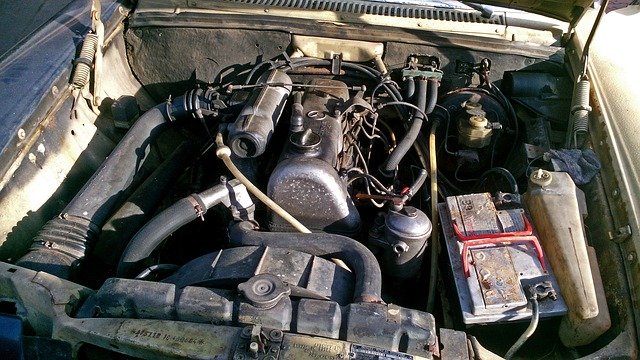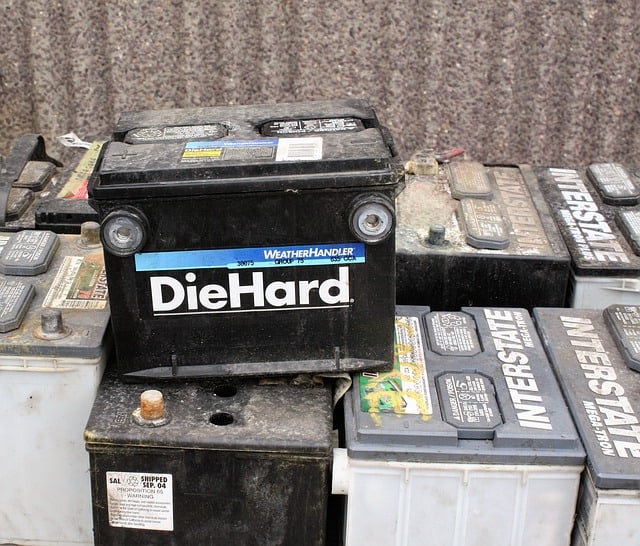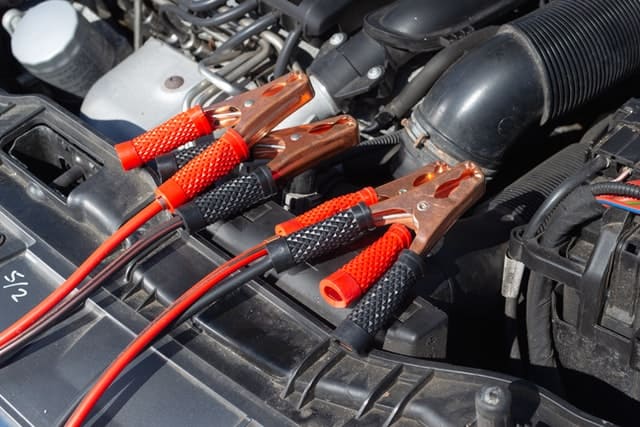Last Updated on March 1, 2025 by Nate Schnell
Car battery corrosion is a common issue that can lead to starting problems, reduced battery efficiency, and even complete failure if left unchecked. This happens when the sulfuric acid in the battery reacts with the lead terminals, creating a buildup that interferes with the battery’s function. Keeping your battery clean and well-maintained is crucial for preventing these issues and ensuring reliable vehicle performance.
Understanding Car Battery Corrosion
Corrosion is typically caused by electrolyte leakage, improper charging, environmental exposure, or simply the age of the battery. Overcharging or undercharging can accelerate the production of hydrogen gas, leading to buildup around the terminals. Similarly, high humidity and extreme temperatures increase the likelihood of corrosion forming. As batteries age, their internal components degrade, making them more susceptible to these issues.
If corrosion builds up unchecked, it can interrupt electrical flow, making it difficult for your vehicle to start. The battery’s overall efficiency may decline, shortening its lifespan and affecting other parts of the vehicle’s electrical system, such as the alternator. That’s why regular inspection and maintenance are key to preventing problems before they start.
Safety Precautions Before Cleaning
Before working on your car battery, it’s important to take the necessary safety precautions. Always wear protective gloves and safety goggles to prevent direct contact with battery acid. Make sure the car is turned off and the keys are removed from the ignition to avoid any electrical hazards. Work in a well-ventilated area to minimize exposure to harmful fumes, and be mindful not to touch both battery terminals at the same time to prevent electric shocks.
Cleaning Car Battery Corrosion Step by Step
Start by disconnecting the battery. Begin with the negative terminal, loosening it with a wrench before moving on to the positive terminal. This order prevents accidental short circuits. Keep the cables separate and avoid allowing them to touch metal parts.
A simple and effective cleaning solution can be made using baking soda and water. Mix a tablespoon of baking soda with a cup of water until fully dissolved. You can also use white vinegar or lemon juice, as both help neutralize the acidic buildup. Using an old toothbrush or wire brush, dip it into the solution and scrub the corroded areas thoroughly. Let the solution sit for a few minutes to break down stubborn deposits before wiping everything clean.
Once the corrosion has been scrubbed away, rinse the area with distilled water and dry it completely with a clean cloth. Avoid using tap water, as it contains minerals that may contribute to future buildup. When the battery is dry, applying a thin layer of petroleum jelly or dielectric grease to the terminals can help protect against future corrosion. You may also consider using battery terminal protectors for added prevention.
When reconnecting the battery, start with the positive terminal first, followed by the negative. Ensure the connections are tight and secure before starting your vehicle to confirm that everything is functioning properly.
Preventing Future Corrosion
To keep corrosion from returning, focus on proper battery care. Overcharging and undercharging can accelerate terminal corrosion, so using a regulated charger and ensuring that the alternator is functioning correctly will help extend the battery’s life. Regular inspections are also beneficial, and checking the battery every few months for signs of buildup can save you from bigger issues down the road. Keeping the battery and terminals clean and dry is one of the simplest ways to prevent corrosion.
Using an anti-corrosion spray or protective terminal caps can also help slow down corrosion. Additionally, ensuring that vent caps are properly sealed will prevent excess acid leakage. If you consistently experience corrosion despite maintenance, it may be time to replace the battery.
When to Seek Professional Assistance
Sometimes, corrosion buildup is excessive, and simple cleaning won’t be enough. If you notice frequent corrosion despite regular maintenance, or if your car continues to have trouble starting even after cleaning the terminals, it’s best to have the battery and electrical system inspected by a professional. Persistent issues may indicate that a replacement is needed or that another underlying problem is affecting the battery’s performance.
Final Thoughts
Maintaining a clean battery is essential for reliable vehicle operation. Corrosion can interfere with performance and lead to costly repairs, but regular cleaning and preventative measures can keep your battery in excellent condition. By taking a few simple steps, you can extend the life of your battery and avoid the frustration of unexpected breakdowns.



